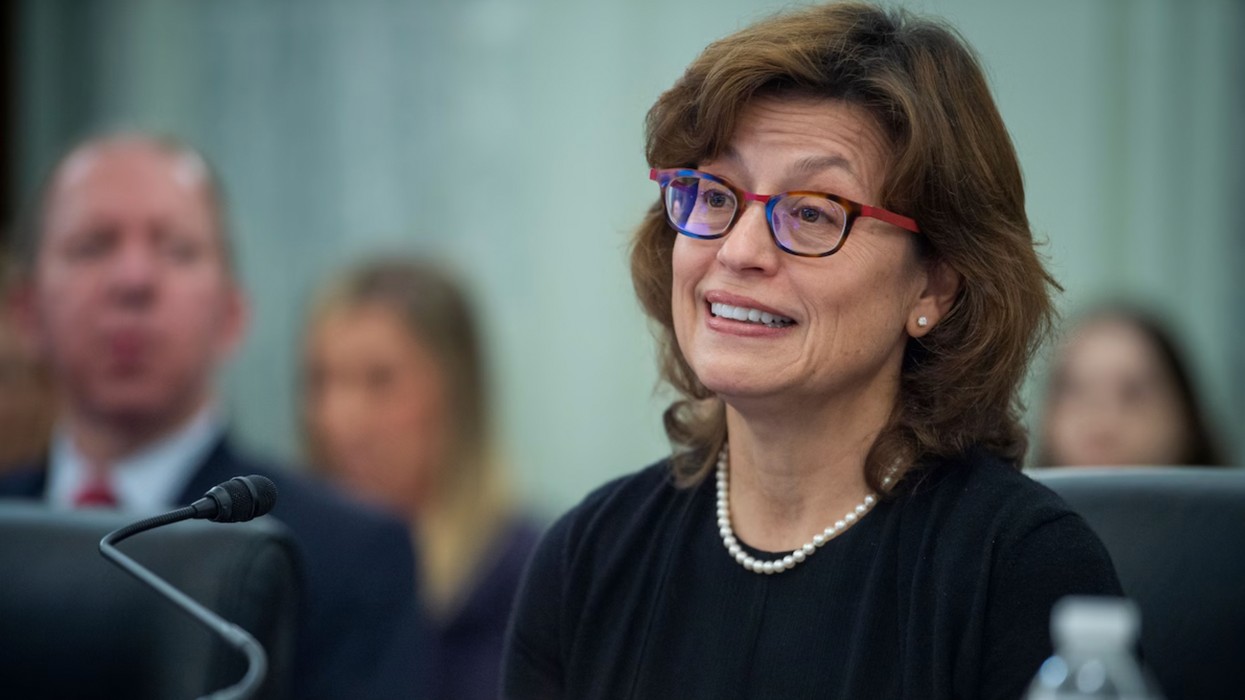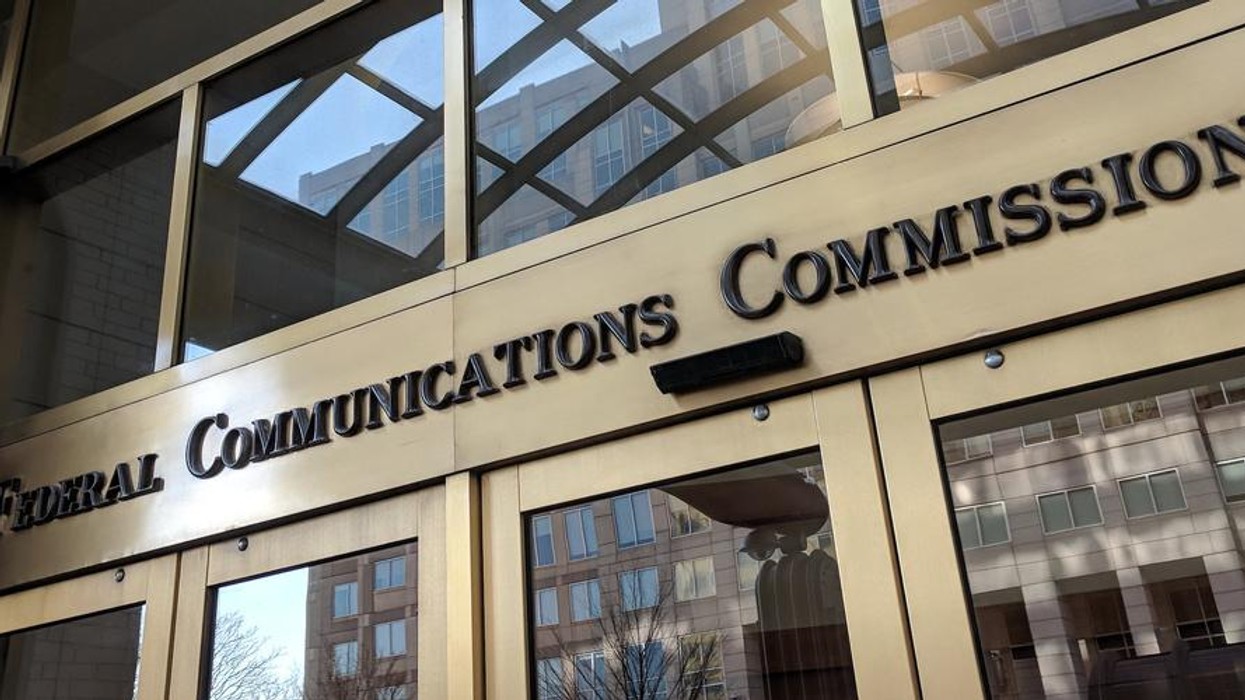FCC Chair Rosenworcel Finally Has a Majority; Will She Deliver?
If Gomez, Starks, and Rosenworcel prove ready to follow President Biden’s lead in cracking down on dangerous concentrations of private power and control, there is no shortage of items they can quickly address.
After spending the last two and half years deadlocked 2 to 2, the Federal Communications Commission, or FCC, has reentered the policy battlefield with the confirmation of new commissioner Anna Gomez last week. Democratic appointees now hold a majority for the first time since the Obama administration. The standoff has meant that few regulatory decisions of importance have been made since President Joe Biden took office.
Gomez’s quiet ascension follows a year-plus-long battle over former nominee Gigi Sohn, who withdrew from consideration in March, after a scorched-earth campaign against her nomination by large technology and telecommunications corporations undermined support among centrist members of the Senate Democratic caucus.
In recent months, FCC Chair Jessica Rosenworcel has shown signs she is willing to challenge platform and telecom monopolists, and Democratic commissioner Geoffrey Starks has demonstrated strong reformist instincts. This means the FCC’s direction appears to hinge on Gomez’s appetite for taking on these powerful corporations. Gomez’s mix of experience in both the public and private sectors smoothed her path to confirmation but led to some questions about whether she is up for big fights.
With every Democratic commissioner previously voicing support for re-reclassification, the restoration of net neutrality appears to be a foregone conclusion.
If Gomez, Starks, and Rosenworcel prove ready to follow President Biden’s lead in cracking down on dangerous concentrations of private power and control, there is no shortage of items they can quickly address, including:
1. Restoring Net Neutrality to Internet Service Providers
In most advocates’ view, the commission’s top priority is to again categorize the internet as a “common carrier service” under Title II of the Communications Act of 1934. The 2015 implementation of net neutrality provisions under Obama-era FCC chair Tom Wheeler was the crowning achievement of the open internet movement, before being reversed by Trump-appointed FCC chair Ajit Pai in 2018. Net neutrality is a rare issue where public advocates and large tech companies mostly align, sharing distrust of a regulatory regime that gives ISPs the power to discriminate against some internet content by controlling the speed at which it is accessed. With every Democratic commissioner previously voicing support for re-reclassification, the restoration of net neutrality appears to be a foregone conclusion.
2. Applying Net Neutrality Principles to Google, Facebook, and Twitter
In a November 2017 speech sponsored by the Open Markets Institute, Senator Al Franken said the FCC’s authority under the Federal Communications Act of 1934 can also serve as a model for regulating big tech platforms. A reinvigorated FCC could swiftly move to take up this challenge from Franken, who earlier had been a leading champion of net neutrality, by declaring the platforms to be essential online communications infrastructure, and regulating them accordingly. Most importantly this would include requiring them to provide the same service at the same price to all users.
Taking this path would also enable the FCC to work more effectively with the Department of Justice (DOJ) and Federal Trade Commission (FTC) in addressing some of the threats to democracy posed by Facebook and Google. For instance, the FCC could target Facebook’s threat to block access to news in California, as Facebook is already doing in Canada, as punishment for legislation to force the platforms to pay the news publishers who employ the journalists who actually create the information that gives the platforms value. Such a move would also enable the FCC to join the DOJ and FTC in addressing the threats to democracy posed by Elon Musk’s control of Twitter and Starlink, as the Open Markets Institute called for them to do last November. Since taking control of Twitter, Musk has moved to throttle access to news sites and competing platforms and to directly interfere in Ukraine’s war of defense against Russia.
3. Reversing Trump-Era Deregulation of Television Broadcast Stations
Under former chair Ajit Pai, the FCC drastically cut restrictions limiting cross-ownership of print media and television broadcast entities, allowing for greater concentration in smaller media markets. Building on the Obama-era FCC’s questionable decision to scale back restrictions on foreign investments in broadcast stations, the Trump-era FCC also took broad steps to make it easier for American television stations to bring on foreign investors, and weakened rules for reporting their identities. Rosenworcel has recently demonstrated an interest in combatting consolidation in the sector: When hedge fund Standard General moved to buy broadcast television giant Tegna Inc., Rosenworcel used regulatory maneuvers to block the deal without a full vote of the deadlocked commission.
4. Ensuring Fair Distribution of New Infrastructure and IRA Benefits and Funds
The FCC can also ensure that the expansions of telecom infrastructure under the Infrastructure Investment and Jobs Act and the Inflation Reduction Act are implemented equitably. Pending rulemaking around “digital discrimination of access” language in the infrastructure bill will clearly indicate whether the new Democratic majority is willing to challenge telecommunications providers and large platforms on behalf of the public.


